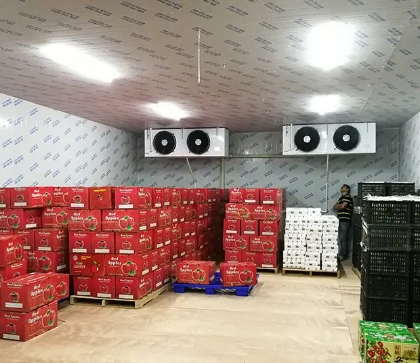Understanding the Importance of Vegetable Cold Storage for Prolonging Freshness and Quality
The Importance of Vegetable Cold Storage Rooms
In the ever-evolving landscape of food supply and distribution, the importance of vegetable cold storage rooms cannot be overstated. These specialized facilities play a crucial role in preserving the freshness, nutritional value, and overall quality of vegetables throughout their journey from farm to table. With the global population on the rise and the demand for fresh produce increasing, effective cold storage solutions have become essential in reducing food waste and ensuring food security.
Vegetables are highly perishable goods that can lose their optimal quality due to factors such as temperature fluctuations, humidity levels, and exposure to light. Cold storage rooms address these concerns by maintaining a controlled environment that slows down the metabolic processes of the vegetables. Typically, these storage facilities are kept at low temperatures, often between 0 to 10 degrees Celsius, which significantly extends the shelf life of vegetables such as leafy greens, root vegetables, and tomatoes.
One of the primary advantages of vegetable cold storage is the preservation of nutritional value. Fresh vegetables are an important source of vitamins, minerals, and antioxidants; however, their nutritional content can degrade rapidly if not stored correctly. By utilizing cold storage, producers and retailers can ensure that vegetables retain their vitamins for longer periods, thus providing consumers with healthier options.
vegetable cold storage room

Additionally, cold storage rooms are vital for managing seasonal fluctuations in vegetable supply. Many vegetables are harvested in specific seasons, which leads to a surplus during peak times and shortages off-season. Cold storage facilities allow producers to store excess produce, making it available throughout the year. This not only stabilizes prices but also promotes sustainable consumption practices by reducing the need to import vegetables from distant locations.
The efficiency of vegetable cold storage rooms also contributes to reducing food waste. According to various studies, a significant portion of the fresh produce entering the supply chain is wasted due to spoilage. By implementing efficient cold storage, food distributors can prolong the shelf life of vegetables, thereby reducing the volume of waste generated. This not only benefits the economy but also has positive environmental implications, as less food waste translates to a decrease in greenhouse gas emissions associated with decomposing organic matter.
In conclusion, vegetable cold storage rooms are essential components of the modern food supply chain. They enhance the longevity and nutritional quality of vegetables, help manage seasonal supply variations, and play a key role in reducing food waste. As we continue to navigate the challenges of food security in an increasingly populated world, investments in cold storage technologies will be crucial for supporting a sustainable and efficient agricultural system. Ultimately, by ensuring that fresh vegetables are available to consumers year-round, cold storage can contribute significantly to healthier diets and improved public health outcomes.
-
Transform Operations with Vacuum Freezer MachineNewsMay.14,2025
-
Enhance Business with Cold Room TechnologyNewsMay.14,2025
-
Vacuum Freezer Machine for Modern NeedsNewsMay.09,2025
-
Discover Our Comprehensive Cold Room SolutionsNewsMay.09,2025
-
Cold Room Solutions for Your BusinessNewsMay.08,2025
-
Advanced Vacuum Freezer MachineNewsMay.08,2025
















































































































